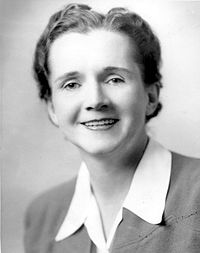 M. Butterfly.
M. Butterfly. by
David Henry HwangMy rating:
4 of 5 starsSong Liling: Under the robes, beneath everything, it was always me. Tell me you adore me.
Rene Gallimard: How could you, who understood me so well, make such a mistake? You've shown me your true self, and what I love was the lie, perfect lie, that's been destroyed.
Song Liling: You never really loved me.
Rene Gallimard: I'm a man who loved a woman created by a man. Anything else simply falls short.
A. and I made it to the Guthrie's
2010 production of
M. Butterfly just one day before it closed, and I'm so glad we did. I always had the feeling that I didn't need to see the play since I'd already seen (and liked) the 1993 film version with Willem Defoe.
But as Robert McKee rightly argues, it's a valuable experience to compare plays that have been adapted into films. Compared to the film, Hwang's play goes much further to make expansive and even pedantic statements about the Orientalism so effectively encapsulated in the story of Madame Butterfly, the tragic story of beautiful Oriental who falls for a Western man:
Rene Gallimard: You made me see the beauty of the story, of her death. It's, it's pure sacrifice. He's not worthy of it, but what can she do? She loves him so much. It's very beautiful.
Song Liling: Well, yes, to a Westerner.
Rene Gallimard: I beg your pardon?
Song Liling: It's one of your favorite fantasies, isn't it? The submissive Oriental woman and the cruel white man.
In an example of the expansiveness I mentioned, our protagonist here, the Frenchman Gallimard, has an "extra-extra-marital affair," with a Swedish chick he meets at a party. After they have sex, she gets a big scene in which she theorizes that male aggression is all a matter of not being able to settle who has the biggest penis. Her monologue is truly funny, though at the same time vaguely reminiscent of conversations from undergraduate classes on war and colonialism. Most importantly, it's largely a step outside the central plot of the story, so of course in any movie adaptation it would most likely have to be cut.
The play production is also more expansive in terms of Hwang's technique of very fast scene changes, characters delivering dialogue in multiple scenes at the same time, and exposition in the play simultaneous to performances of the play-within-the-play, the opera
Madame Butterfly. In the Guthrie production, scenes from the opera are briefly re-enacted on a small stage above the main floor of the Wurtele thrust. The effect of the much more powerful sounds of the opera scenes, with the players in the drama looking at the opera as we look at them looking at the opera, is a really classic meta-moment in a dramatic story, all geared towards revealing the way we each of us take up romantic fantasies through the art we love (Madame Butterfly may not be politically correct, but to think kids these days are subbing in television and video games can remind us that opera is not so bad...). The effect of "oh-my-gosh, we all do that sort of thing" is more palpable in the play version, at least when it is directed properly. The great amount of space commanded by the Wurtele Thrust is no doubt a big help as well.
As Hwang tells us, this story is much more than a condemnation of Orientalism. Song Liling is a tragic figure as well, a cynical manipulator of Orientalism who comes up with his own fantasy of inverting the Butterfly role and taking up the role of Pinkerton, the selfish and unfaithful Western lover, with his Armani suit and implication of big penis. But Gallimard manages to get back at Liling one last time by denying Liling this final advantage. Gallimard sticks truer to operatic tragic figure than Liling expected: he only loves an ideal, and realizing the impossibility of the ideal, is committed to destruction.
So goes what just has to be the flagship example of postcolonial tragic drama. (Geez, what play beat this one in the 1988 Pulitzer awards?)
View all my reviews >>
Read more...










